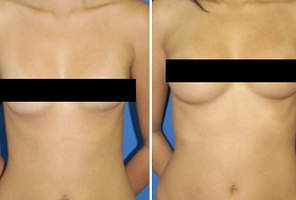Capsular contracture is an extremely rare but very serious condition that may occur if your body reacts negatively to the presence of breast implants. In addition to occurring after breast augmentation surgery, it can also occur when a body reacts poorly to joint replacement surgeries where artificial prosthesis are implanted beneath the skin. Understanding what to look for and how to treat capsular contracture is very important to your health as this condition must be treated as soon as possible after occurring.
Capsular Contracture Symptoms
There are a variety of symptoms that could indicate that you are experiencing capsular contracture with your breast implants or artificial joint implants. Capsular contracture occurs when the collagen that is located beneath your skin identifies a foreign substance as being a threat and threads together to form a block against the substance, essentially attempting to isolate the foreign substance from the rest of your body. Once the collagen attempts to quarantine the foreign substance, a contraction occurs and squeezes the breast implant or artificial joint implant. This contraction can be extremely painful and can damage the implant as well.
The capsular contracture may be caused by the presence of bacteria on the breast implant or artificial joint implant. It can also be caused if an implant leaks or even if it shifts positions. Essentially, any foreign substance that collagen considers to be a risk can cause capsular contracture to occur. Different people have different reactions and while a substance may cause a severe reaction in one person, it may leave another largely unaffected.
Treating Capsular Contracture
There are two advanced treatments available to ease the occurrence of capsular contracture, both involving surgical intervention. The first involves removing the collagen capsule - or tightly knitted band of collagen that has tightened around the breast implant or artificial joint implant. Another surgical option is to remove or replace the implant, but this does not guarantee that another incidence of capsular contracture will not occur in the future.
Non-surgical treatments are available as well. The most common is massage - gently applying motions of pressure to ease the contraction and redistribute the capsules of collagen. Certain medicines designed to release contractions, including Singulair, may also be used. Ultrasound and electromagnetic field therapy may also be found useful in limited circumstances. Generally, all non-surgical alternatives should be explored prior to surgical intervention.

